While there are cultures in the world that really enjoy eating fava beans, we primarily utilize them as a cover crop. I really don’t have much against consuming fava beans, but the taste and texture are not my favorite.
To top it off, the last time we had fava beans as a family – my wife was sick in bed thereafter. It seems that she may have had a mild case of favism. There is a chemical in fava beans that can be toxic to some groups of people, so before becoming gluttonous with any large crop of fava beans, it may be wise to try a couple out to see if you have a reaction.
The crop of fava beans I had was good, but near the end, they were attacked pretty hard by aphids. Whether this particular variety of fava is more susceptible to aphids or whether all fava beans are prone to aphid infestations, I really cannot say. My approach to dealing with pest pressure would probably be considered an “integrated pest management” approach. I cut the tops off the most infested plants and put them away from the other plants (in a plastic trash bag) but it was only a matter of time before the aphids spread across most of the plants
Despite the onset of beneficial insects, the aphid population had come to a point where I made the decision to cut most of the plants down at the base. I kept a few of the healthiest plants as a place for me to safely leave all of the eggs, larvae and adult beneficial insects I found as I cleared the bed.
As a cover crop, fava beans tend to bank as much nitrogen into the soil as any other cover crop I know of. Not do the plants produce plenty of nitrogen below ground but they produce plenty of foliage above the soil which helps to smother any potential weeds that may arise. I highly encourage those who have never tried growing a cover crop, to at least try a shorter fava variety, like Robin Hood. It is well worth the minimal time and energy required to reinvigorate the soil for the next season.




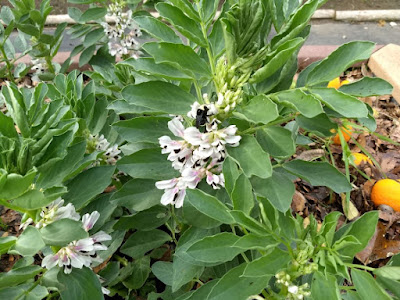



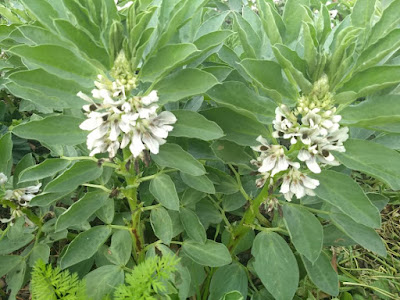



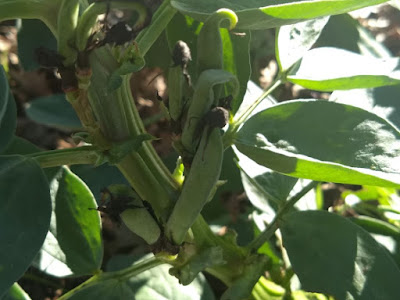
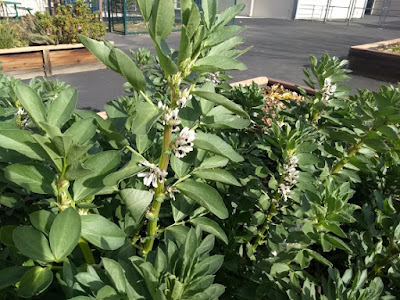
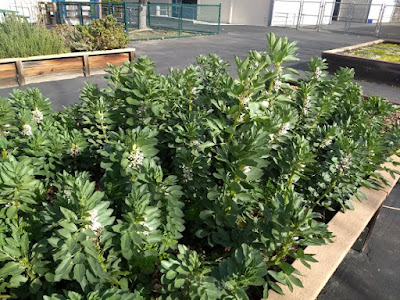






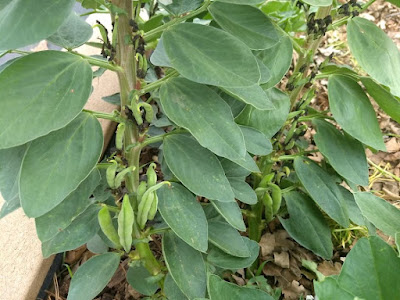




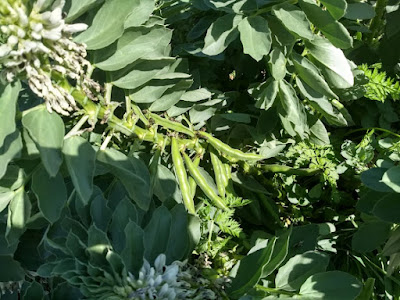
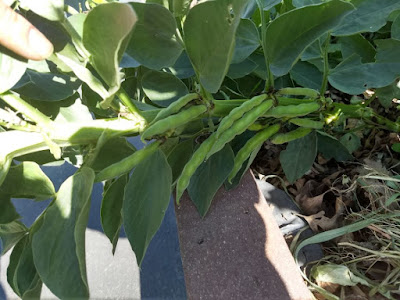
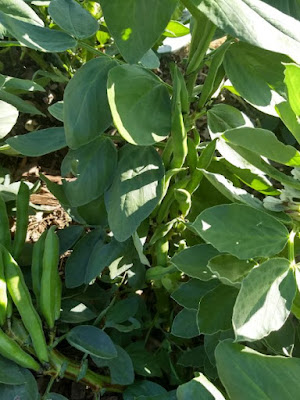


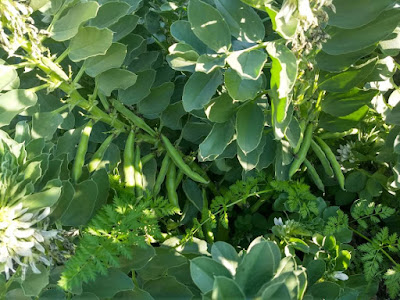
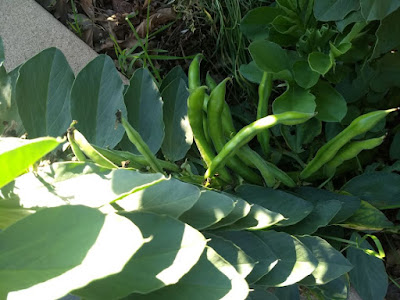


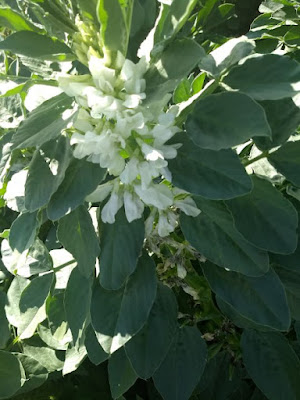


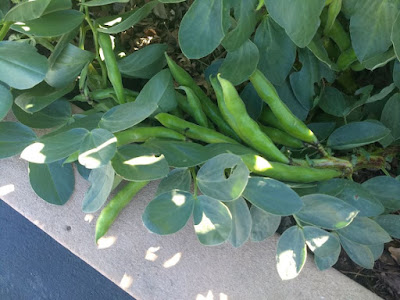




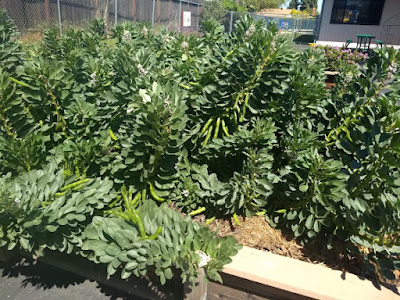


No comments:
Post a Comment
Dear Gardening Friends,
I look forward to learning more about gardening with you. Your comments help me recognize that gardening is a life-long journey.
To advertisers: Note that this blog is concerned with gardening and gardening techniques. Please do not attempt to advertise here by leaving a comment. Depending upon how egregious the comment is, it may be deleted.